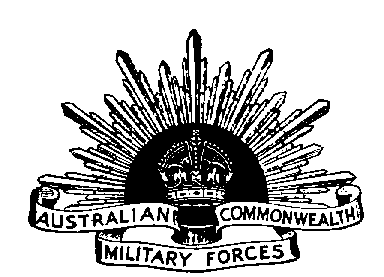

John Meredith was born at Derrylough, Rosenallis, Queen's County, Ireland, on 11 November 1864, the seventh child of a landowner of Welsh extraction. He was educated at Arlington College, Port Arlington. Unable to afford an army commission, he studied medicine at the leading hospitals in Dublin from 1882 to 1887 under auspices of the Royal College of Surgeons in Ireland. In 1888 he qualified as a licentiate of the Royal College of Surgeons and Physicians, Edinburgh, and of the Faculty of Physicians and Surgeons, Glasgow. Then he decided to try for a passage to one of the colonies as a ship's doctor. In this manner, he immigrated to Australia, where he bought a practice at Raymond Terrace, New South Wales. He later became a government medical officer.
Meredith joined the Hunter River Light Horse. In 1899 he volunteered for South Africa, serving as a medical officer in the Citizen's Bushmen's Contingent in Rhodesia, the Transvaal, the Orange River Colony, the Cape Colony and at the Relief of Mafeking. In 1905, with the rank of second lieutenant, Meredith formed a troop of light horse at Raymond Terrance which became part of the 4th Light Horse Regiment. He was promoted to captain in 1906 and major in 1908. In 1908 he took his family to England and Ireland where he was attached to the 18th Hussars in Ireland for training. In 1910, he took command of the 4th Light Horse Regiment. He was promoted to lieutenant colonel and took command of the 6th Light Horse Regiment (Hunter River Lancers) in 1912.
On 28 August 1914 Meredith joined the AIF as commander of the 1st Light Horse Regiment with the rank of lieutenant colonel. He served with the regiment at Gallipoli from 22 August 1915 until the evacuation of Anzac. From 6 to 29 December 1915 he was acting commander of the 1st Light Horse Brigade.
The 1st Light Horse regiment arrived back in Alexandria on 27 December 1915 and on 14 January 1916 was ordered to join the Western Frontier Force, defending the Sudan against the Senussi. On 5 May 1916, Meredith once again took over command of the 1st Light Horse Brigade when Brigadier General C.F. Cox went to England on sick leave, holding the rank of colonel while in command of the brigade. Meredith commanded the 1st Light Horse Brigade at the Battle of Romani on 3 and 4 August 1916, when his men fought off a series of Turkish attacks. He ceased to command the brigade on 26 August 1916 and reverted to the rank of lieutenant colonel. For his role in this battle, Meredith was mentioned in dispatches on 13 October 1916 and awarded the Distinguished Service Order (DSO) on 20 January 1917.
On 2 September 1916, Meredith departed for Australia on the transport Ascanius for three months furlough, arriving on 29 September. He set out for Egypt again on 9 December 1916, sailing from Melbourne on the transport Vestalia 15 December 1916 and arriving back at Suez on 19 January 1917. On 13 February 1917, Meredith took over the newly reformed 4th Light Horse Brigade, which contained the 4th, 11th and 12th Light Horse Regiments, all veterans of Gallipoli and the fighting in the Sinai. He was made a temporary brigadier general on 13 February 1917 and was promoted to full colonel on 1 May 1917. He led his brigade at the Second Battle of Gaza in April 1917 but on the eve of the Battle of Beersheba in October 1917, he was forced to return to Australia for family reasons. He boarded the transport Wiltshire on 12 November 1917 and arrived back in Australia on 20 December 1917, where his appointment to the AIF was terminated on 3 January 1918. For his command of the 4th Light Horse Brigade he was mentioned in dispatches on 20 November 1920.
Meredith commanded the 2nd Cavalry Brigade from 1921 to 1923, when he retired as a brigadier general. He died on 1 January 1942 and was cremated.
Sources: Australian Dictionary of Biography, 1899-1939, Vol 10, pp. 485-486; Personnel File, NAA
Page created by Ross
Mallett
ross@metva.com.au
Last update 23 September 2001